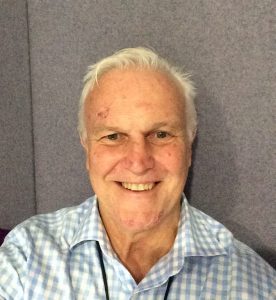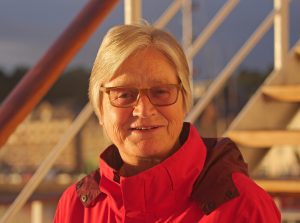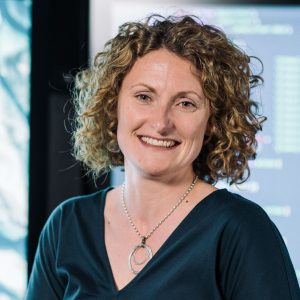Speakers at the Summit on Environmental Intelligence
Professor Jim Zidek, Professor Emeritus, Department of Statistics, University of British Columbia

From acid rain and statistics to climate change and AI: the road to environmental intelligence
This presentation will provide a personal perspective of the increasingly widespread use of data and AI technologies to address environmental challenges. It describes the journey from the early days of modelling environmental hazards through the of a emergence of a separate discipline of statistical science in the 1980’s to the use of cutting-edge AI technologies in the current day. A number of serendipitous events led to the speaker’s early involvement in this development, that initially involved just a handful of statistical scientists. He will describe its evolution through his own experiences in a series of successive, overlapping but distinctive epochs: acid rain; environmental epidemiology; climate change; management; and policy development. Specific examples will be described, including the design of monitoring networks, the effects of preferential site selection; the estimation of personal exposures to air pollution; combining physical and statistical models; tracking of sea mammals to estimate their abundance; forecasting crop yields; estimating lumber strength in relation to climate changes; and the use of EI in policy development.
Professor Zidek received his MSc and PhD from the University of Alberta and Stanford University, both in Statistics. He then joined the faculty at the University of British Columbia (UBC) where he has remained and became the founding head of the Department of Statistics at UBC in 1984. His research includes structural engineering, initially the development of the first design code for long span highway and now the engineering properties of forest products. He is also well recognized for his work in environmetrics, notably on the design of environmental monitoring networks and spatio-temporal modelling of hazardous environmental processes.
Dr. Raia Hadsell, Senior Research Scientist, DeepMind

Raia Hadsell, a research leader at DeepMind, has worked on deep learning and robotics problems for the past 15 years. After completing a PhD with Yann LeCun, which featured a self-supervised deep learning vision system for a mobile robot, her research continued at Carnegie Mellon’s Robotics Institute and SRI International, and in early 2014 she joined DeepMind in London to develop AGI – artificial general intelligence. Her current research focuses on the challenge of interactive learning for AI agents and robots, including subjects such as neural memory for real world navigation and continual learning.
Glenn Everett, Director, Sustainability and Inequalities Division, Office for National Statistics (ONS)

Glenn is a career statistician. He began his career in the Australian Bureau of Statistics covering social to economic statistics. He moved to the UK in the early 1990s and joined the UK Government Statistical Service. His career has included statistical posts in a number of policy departments including the Department for Employment, Education, and Trade & Industry. At the ONS, he led the Regional statistical service and was head of National Accounts before becoming Programme Director for Measuring National Well-being. This work has focused on the ‘Beyond GDP’ agenda and evolved to now include the Sustainable Development Goals, Well-being and Quality of Life, Environmental statistics, and Centre for Equalities.
Dr Simon Gardner, Natural Environment Research Council (NERC)

Simon Gardner is Head of Digital Environment at the Natural Environment Research Council (now part of UK Research and Innovation). He is leading the delivery of the, ‘Constructing a Digital Environment’, programme, which is seeking to use emerging technologies to assess, analyse, monitor and forecast the state of the natural environment in a more integrated and detailed way. He was previously the Head of Innovation with responsibility for directed industry-facing programmes, knowledge-exchange, research commercialisation, and the delivery of the ‘Regional Impact from Science of the Environment’ (RISE) programme.
Yaera Chung

Yaera Chung is a Consultant on Innovations for Data and Civic Engagement at UNDP Regional Bureau for Europe and Central Asia where she works on open governance, accountable institutions and civic engagements through technology and data. Before joining UNDP, she worked with World Vision International Nepal on social inclusion and as a researcher in Malawi for a RCT-based health intervention program.
Dame Julia Slingo OBE DSc FRS HonFRSC HonFInstP HonFRMetS

Dame Julia Slingo served as Chief Scientist of the UK Met Office from 2009-2016 when she retired. At the Met Office, she led a team of more than 500 scientists working a broad portfolio of research that underpins weather forecasting, climate predictions and climate change projections. Through her career, she has worked at the European Centre for Medium-range Weather Forecasts (ECMWF), the US National Center for Atmospheric Research (NCAR) and Reading University. Amongst other awards, Dame Julia was elected a Fellow of the Royal Society in 2015 and Foreign Members of the US National Academy of Engineering in 2016.
Professor Gordon Blair, University of Lancaster

Gordon Blair is a Distinguished Professor of Distributed Systems in the School of Computing and Communications at Lancaster University. He has published over 300 papers in his field and is on the PCs of many major international conferences in middleware and distributed systems. He is also a member of the steering committee of the ACM/ IFIP/ Usenix Middleware series of conferences. His current research interests include distributed systems architecture and the applicability of contemporary distributed systems technologies (including cloud computing and the Internet of Things along with data science concepts) to environmental science.
He is co-author of the highly successful book Distributed Systems: Concepts and Design by Coulouris, Dollimore, Kindberg and Blair with the 5th edition published in 2011. He also holds a prestigious EPSRC Senior Fellowship in Digital Technology and Living with Environmental Change (DT/LWEC), and is co-editor in chief of Springer’s Journal of Internet Services and Applications. He is theme lead (environment theme) for Lancaster’s Data Science Institute, and also co-founder of the Center for Excellence in Environmental Data Science (CEEDS), a joint initiative between DSI and the Centre for Ecology and Hydrology (CEH).
Dr Murray Simpson, Climate Risk & Resilience Lead, IBM

Dr Murray Simpson specialises in climate resilience, sustainability, impacts, adaptation, energy, green finance and business development. He is a highly experienced International Consultant, a Visiting Research Associate at Oxford University, and a Resilient Cities and Green Finance Specialist.
He has directed, project managed and worked on c.200 projects in over 70 countries. His work bridges the gaps between science, policy and practice. Dr Simpson is also a technical, policy and implementation advisor to corporations, national governments, international organisations, communities and UN agencies, including the UNFCCC, UNEP and UNDP. He is a UNEP evaluator; an Associate of Climate Change Risk Management (CCRM); a member of the Royal Society Global Environmental Research Committee and a Fellow of the Royal Geographical Society.
Austin Brown – Ecology Team Leader at Arup London

Austin’s career started in conservation including for ZSL, Jersey Zoo and for the Mauritian Wildlife Foundation. He is now an ecological consultant working for Arup, a large multidisciplinary firm, and is the Team Leader of a highly successful team of 12 consultant ecologists their London headquarters. His work brings him into contact with some renowned masterplanners such as Foster & Partners, Zaha Hadid, Grimshaws, as well as local government providing advice and design innovation around ecology.
Dr Mike Morecroft, Ecologist, Natural England

Mike Morecroft is an ecologist at the government conservation agency, Natural England, where he leads work on climate change adaptation and mitigation. He is a scientist who works closely with policy makers and practitioners, on issues ranging from the UK’s National Adaptation Programme for climate change to nature reserve management. He is a lead author for the Intergovernmental Panel on Climate Change and published over 140 scientific papers, reports and book chapters. Mike led a research group at the Centre for Ecology and Hydrology before joining Natural England in 2009 and is an Honorary Research Associate at Oxford University.
Dr David Roy, Head of Biological Records, Centre for Ecology and Hydrology (CEH)

David Roy is an ecologist who specialises in monitoring of biodiversity through citizen science. He leads world-leading programmes for monitoring butterflies and plants, and is the Head of the Biological Records Centre which provides a focus for recording of all UK species. His research has spanned a number of high impact themes, including urban ecology, genetically-modified crops, climate change, invasive species and ecosystem services. He has authored over 150 scientific journal papers.
Dr Kari Dempsey, Head of Data Science, UK Hydrographic Office (UKHO)

Kari is the Head of Data Science at the UK Hydrographic Office. She is responsible for leading the technical data science and data engineering work at the organisation, and building these functions to transform the organisation into a world leading Marine Geospatial Information Agency. She is also co-chair of the Marine Domain working group for the Open Geospatial Consortium (OGC), and is the lead for the GDS geospatial data science accelerator specialist hub. Previously Kari worked at large blue-chip organisations as a principle consultant implementing global business intelligence and data analytics solutions.